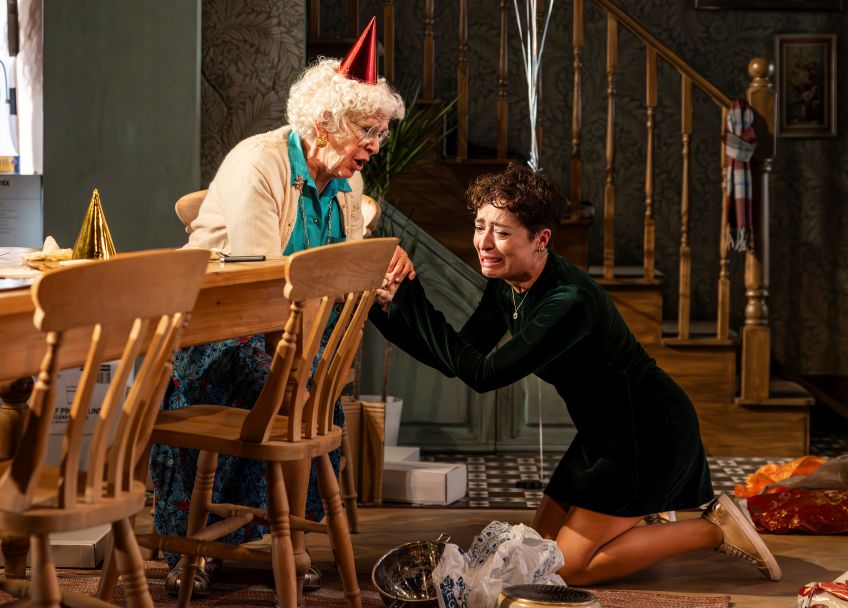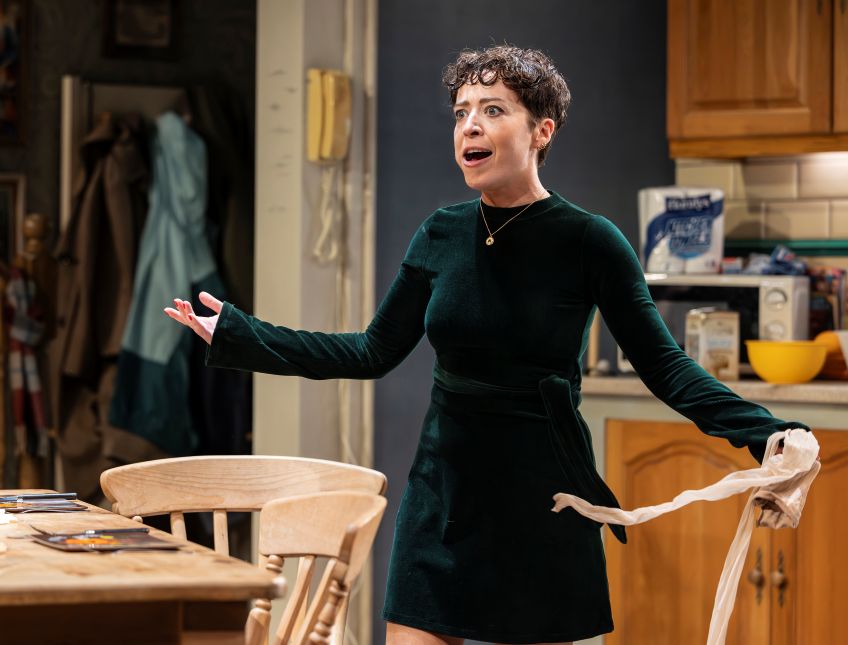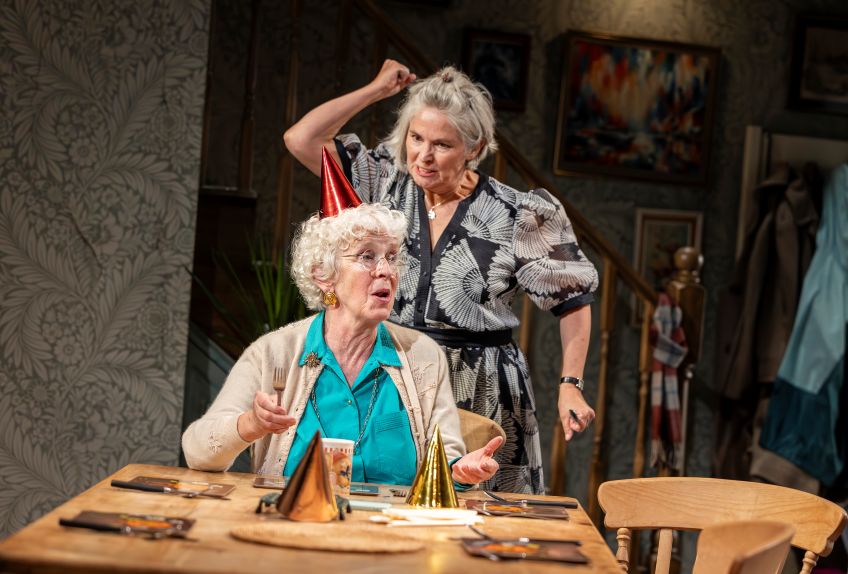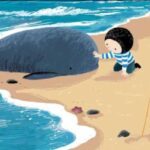Karis Kelly’s Consumed packs a punch, no doubt about it. Indeed, throughout its 70 gripping, gruelling minutes of mayhem four madly sparring women pummel the audience relentlessly with their super-charged intensity. It’s manic and alarming; it’s cruel, chaotic and comical; it’s surreal and macabre, muddled and bewildering; it’s also very real and meaningful, and above all, it’s horrendous. Issues galore are touched upon, but none resolved. We take from it all what we will or maybe take nothing apart from being grateful there’s only one act – one very packed act.
It all takes place in a kitchen, a kitchen that quickly becomes a bubbling, suffocating, overflowing cauldron of seething, negative emotions when four generations of women get together for the 90th-birthday “celebration” of Great Granny Eileen. In the vein of Catherine Tate’s nasty Nan, Eileen’s played horribly fiery, vindictive and foul-mouthed by Julia Dearden. She lives with her disturbed, distressed daughter, Gilly (Andrea Irvine) with spasmodic, maniacal “Mrs Doyle” laugh that indicates how close she is to mental breakdown. Heaping more frictional, disruptive icing on the cake Gilly’s hard-drinking daughter, Jenny (Caoimhe Farren) arrives from London with heavy baggage both physical and mental, and with her anxious, disorder-ridden, fourteen-year-old, London-bred daughter Muireann (Muireann Ni Fhaogain) in tow. The powerful performances of all four are admirable as they go at it hammer and tongs, putting themselves, each other, and all of us through the wringer again and again. The seething layers of blame, anger, distress and resentment that eat away inside each woman leads each to relentless self-destruction and fierce aggression, and they all blame each other. Even as things turn over-the-top surreal, though, their characters retain a concrete reality.

The set is magnificent: the impossibly real and extensive kitchen has everything, including the kitchen sink (with window above). Long rows of wooden-doored units house washing machine, fridge-freezer and a lit cooker with roast dinner ready to be argued over and thrown; every worktop is as cluttered as the minds of the protagonists as they hurl their clutter of arguments and vindictive recriminations over and around the central wooden table and chairs. A staircase and wallpapered corridor with old pictures and working clock give the illusion of an entire house beyond, all the space constantly alive with action – both disturbingly physical and disturbingly verbal. When the tall cupboard doors open to reveal just what’s hidden behind those piles of stacked, hoarded cardboard boxes, we might wonder if we’re Inside No 9.
“Children swim in their parents’ subconscious”, said psychiatrist Mate, which puts us all in the same precarious boat. The setting for these terrible goings-on is Northern Ireland but the infinite variety of psychological struggles and disorders that eat away within families and have knock-on effects on individual members through the generations are universal. It’s young Muireann who brings up the question of inherited, intergenerational trauma: she cites an experiment in which a certain smell was introduced to rats at the same time as they were given an electric shock. Unsurprisingly, the rats reacted to that smell forever with pain, distress and fear. Surprisingly, though, four generations later, rats still reacted to that same smell as if they’d been given an electric shock even though they hadn’t. If humans go back a generation or three, most find family members struggling to survive war, loss, trauma, physical and mental disorders and all manners of hardships and suffering. Can that still affect us? Muireann asks if eating disorders like hers or alcoholism might originate genetically through a starving or drunken ancestor besides also stemming from one’s own reactions to adverse societal and parental interactions. The play asks too whether trauma is better repressed and buried or brought to the surface and faced. No answers are given, and the superficial mentions are all thrown into the pot to simmer along with hairy legs and the wearing of tights, the evil of mobile phones, planetary destruction, unfaithful (or dead) husbands, vegetarianism, suicide, religion, politics, hoarding, issues of OCD etc etc.

What we witness, in fact, is a slice of life in the world today, in which all-consuming self-analysis and self-obsession pushout empathy, understanding, consideration and the quiet tolerance of other people’s differences, quirks and individual eccentricities in favour of rushing to judge, cruelly criticise, blame, label, disrespect, denigrate and violently destroy. So, thank goodness it’s tempered by humour! In fact, the more surreal and macabre it gets the more it makes you laugh.
Intense, disturbing, exhilarating and thoroughly exhausting.
Eileen Caiger Gray




